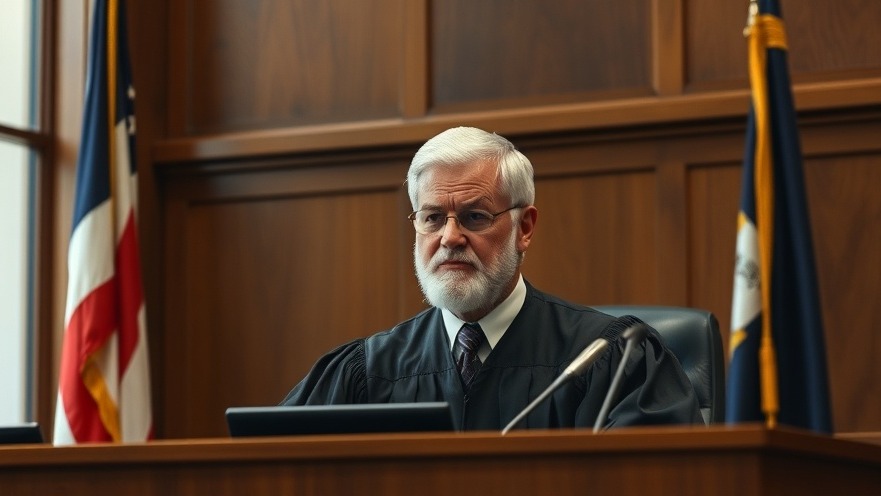
Texas Court Intervenes: A New Dawn for Robert Roberson?
In a dramatic turn of events, the Texas Court of Criminal Appeals has granted a stay of execution for Robert Roberson, who was set to face lethal injection on October 16 due to a conviction for capital murder that dates back more than two decades. Roberson has consistently maintained his innocence in the tragic death of his two-year-old daughter, Nikki, drawing significant public attention and outrage as details of his case have continued to surface.
The Heartbreaking Case Behind the Conviction
Roberson was convicted in 2003 based largely on the controversial diagnosis of shaken baby syndrome. The diagnosis was prevalent during that period, with many in the medical field attributing symptoms like brain swelling and bleeding to abuse. However, subsequent scientific advancements have cast doubt on those conclusions. Defense attorneys argue that Nikki actually suffered from undiagnosed pneumonia and drug complications, leading to her untimely death. Roberson’s conviction—understandingly wrong from these new perspectives—has become politically charged, drawing widespread public and legal support.
Historical Context: Shaken Baby Syndrome and Its Evolving Reputation
Once a pillar of conviction in child abuse cases, shaken baby syndrome is increasingly discredited as the medical community evolves. What was once perceived as clear-cut evidence of abuse is now challenged by advocates who assert that these symptoms could also stem from various other conditions, such as accidental falls or underlying health issues. The case of Robert Roberson illustrates just how far the interpretations of medical evidence can swing, spotlighting the risks inherent in relying on outdated science in the justice system.
A Bipartisan Call for Justice: The Unlikely Allies
Roberson’s plight has garnered unlikely support from a coalition of both conservative and liberal lawmakers, as well as high-profile figures. Rep. Jeff Leach, a Republican from Texas, expressed hope that this ruling brings us closer to the truth. "While the system has failed Robert and Nikki at every turn, today, with this action by the Court, truth and justice finally win the day," he stated. This unusual blend of advocacy across the political spectrum raises questions about broader implications for death penalty practices across the nation.
Roberson's Legal Journey and What Lies Ahead
With the Court of Criminal Appeals sending Roberson's case back to trial court, he may finally have a chance to present evidence that supports his claim of innocence. Strategically, Roberson's legal team is prepared to argue that the original conviction was based on discredited forensic science, and that the case should undergo a comprehensive review based on amendments to Texas law regarding scientific evidence.
The Emotional Toll on Families
This narrative captures more than just legal battles—it unravels the deep emotional wounds experienced by families on both sides. While Roberson’s family has suffered due to his wrongful conviction and the associated stress, the loss felt by Nikki's relatives is palpable. For many, this trial is another painful chapter in an already tragic story.
Future Implications: A Broader Conversation on the Death Penalty
The Roberson case offers critical insights into the broader issues surrounding the death penalty and wrongful convictions in America. As we see more reports highlighting wrongful convictions and the unjust applications of the death penalty, the question arises: is it time to reconsider our reliance on capital punishment altogether? This case may serve as an essential touchpoint for Texas and other states reevaluating their judicial processes.
Conclusion: The Fight for Justice Continues
As Roberson awaits his next trial, this story is far from over. It highlights the imperfections of a legal system that can so easily lead to irreversible penalties based on shaky evidence and outdated theory. As the public observes, the future directions taken by the Texas courts and policymakers will signal crucial changes in the pursuit of truth and justice for all involved.
 Add Element
Add Element  Add Row
Add Row 



Write A Comment